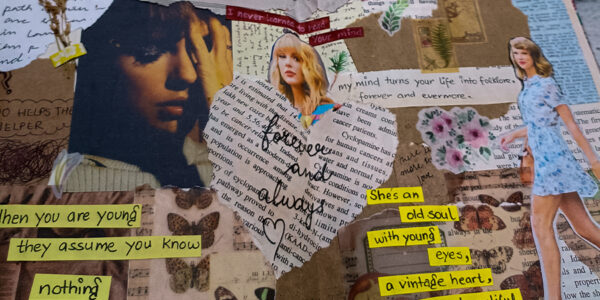In the days since the Astroworld Festival tragedy that has left eight people dead, music fans across every genre have been posting examples of artists and bands who have stopped their concerts to look after their fans.
It started on Sunday when one Travis Scott defender wrote: “What is ‘mosh pit etiquette’ a mosh pit is a mosh pit. are y’all dumb… if anything this is exactly what’s supposed to be happening in a mosh pit.”
Music fans were quick to point out that in the hardcore and metal scene, mosh pit etiquette is VERY MUCH a thing, and that it was imperative that if you see someone fall in a mosh, you need to help them back on their feet.
Twitter user Kari responded with a video of Linkin Park stopping their show and instructing fans to pick someone up who’d fallen down, writing, “No, THIS is exactly what’s supposed to be happening in a mosh pit”.
No, THIS is exactly what’s supposed to be happening in a mosh pit https://t.co/fZQH0QiFuR pic.twitter.com/kWQdVBiShp
— Kari /// Linkin.Bert (@bombalurina03) November 6, 2021
“Pick him up! Pick him up right now!” the video shows late Linkin Park singer Chester Bennington yelling.
“Sorry guys,” rapper Mike Shinoda adds. “We gotta look out for safety first, for real. Nobody gets hurt, that’s number one. We’ll play this sh*t, the whole sh*t again if you guys get up if you guys are all right, okay? Watch yourselves.”
The video, which has racked up 6.7 million views, 302.6k likes and 72.2k retweets, quickly went viral for its great display of true mosh pit etiquette, and Chester Bennington began trending as people responded to the late Linkin Park frontman’s care for his fans’ safety. Bennington died of suicide in July 2017.
The Astroworld Festival is not the first time the mass casualty of people has happened during a concert. For decades, crowd stampedes at poorly planned gigs have turned what should have been a great night into a fatal disaster. Travis Scott’s show has been added to a list of deadly mosh pit surges.
One of the shows on that list is Woodstock 99, a three-day event that took place in Rome, New York, which saw multiple incidents of sexual assaults, violence, heat strokes and one fan who died during a Metallica performance after collapsing.
In 2000, Denmark’s Pearl Jam Roskilde Festival saw nine people trampled to death in a mosh pit during Pearl Jam’s performance. Headlining the main stage of the festival, the wet weather had made the ground muddy and slippery, causing people to trip and fall.
Then, most recently in 2010, Germany’s Love Parade saw 21 people die and 500 injured after a stampede. Close to 1.4 million people attended the world’s largest techno music festival, and as they attempted to escape the crowd surge by climbing a stairway, they fell into the hoards of people and were crushed.
As horrific as these accounts are, the tragic truth is that mosh pits can be incredibly deadly when rules and regulations aren’t followed. Here in Australia, Jessica Michalik died on January 26, 2001, at Big Day Out for the same reasons as above, but what followed was a number of measures put in place to prevent accidents from happening in the future.
After Jessica’s passing, the team behind Big Day Out rolled out 12 new crowd-safety measures which included crowd-care volunteers, more water, video monitoring but most importantly, they designed a D-barrier. The fence creates an area of space between the mosh and the rest of the crowd, which helps relieve pressure.
21 years later, these measures are still used today and are considered integral when keeping patrons safe at music venues. But those in the mosh also have a responsibility to help the people around them and make sure they’re okay. If someone falls, you pick them back up. If things are getting a bit tight, then everyone needs to work collectively to create space.
The Astroworld Festival is a devastating reminder of how quickly things can go south when safety measures aren’t adhered to and people don’t follow mosh pit etiquette. Concerts should be a safe space, no one deserves to leave home thinking they’re about to have the time of their life only to never return.
Read more stories from The Latch and subscribe to our email newsletter.







